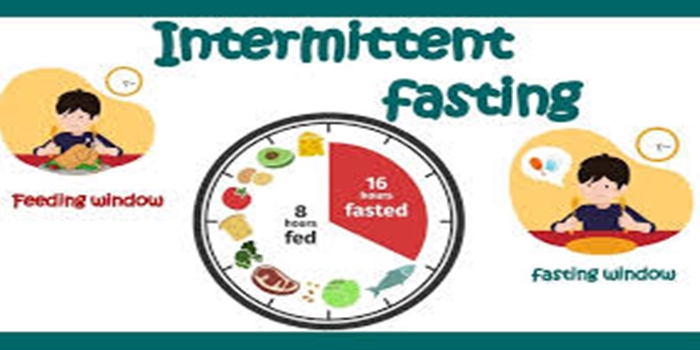In this article, we discussed the meaning of intermittent fasting, the benefits, the types, the effects, we also talked about the rules of intermittent fasting
Definition
Intermittent fasting is an eating plan that involves alternating between eating and fasting over a set period of time:
When to eat: Intermittent fasting focuses on when you eat, rather than what you eat.
How long to fast: The length of a fast depends on the plan, but in the scientific community, a fast is considered to be at least 12 hours.
Popular approaches: Some popular approaches to intermittent fasting include:
Alternate-day fasting: Eat normally one day and either fast completely or eat one small meal the next day
5:2 fasting: Eat normally five days a week and fast two days a week
Daily time-restricted eating: Eat normally but only within a specific time window each day
Intermittent fasting (IF) has many potential health benefits, including:
Weight loss: IF can help you lose weight and visceral fat, the harmful fat around your abdomen.
Improved heart health: IF can improve blood pressure, resting heart rate, and cholesterol levels.
Reduced risk of diabetes: IF can help control blood sugar and reduce insulin resistance.
Improved brain health: IF can boost working memory in animals and verbal memory in humans. It can also help banish brain fog by forcing your body to use stored fat for energy instead of sugar.
Reduced inflammation: IF can reduce inflammation, which can help with conditions like arthritis, multiple sclerosis, and asthma.
Improved sleep: IF can improve sleep by regulating your circadian rhythm and moving digestion earlier in the day.
Cellular repair: IF can induce autophagy, a process that breaks down and metabolizes dysfunctional proteins.
Increased human growth hormone (HGH) levels: IF can increase HGH levels, which promotes fat burning and muscle gain.
IF involves eating only within a certain time frame. By not focusing on calories, your body metabolizes food differently, resulting in burning more calories and fat.
Here are some types of intermittent fasting:
Eat Stop Eat
A variation of the 5:2 diet, where you eat normally for a period of time, then fast for one to two days. During the fasting period, you can only drink zero-calorie beverages.
The Warrior Diet
A more extreme form of intermittent fasting, where you eat very little for 20 hours, then eat one large meal at night.
OMAD
A fasting diet that involves eating a single meal and restricting calories.
36-Hour Fast
A more intense fasting approach where you stop eating dinner, don’t eat at all the next day, and then eat breakfast the day after tomorrow. This is often used to regulate Type 2 diabetes under physician supervision.
Overnight fasting
A simple approach where you fast for 12 hours each day. For example, you could stop eating after dinner and resume eating at breakfast the next morning.
Time-restricted eating
A type of intermittent fasting where you limit eating to a certain number of hours each day.
Spontaneous meal skipping
A method where you wait to eat until you feel hungry. This can help you learn about your caloric needs and how well you can skip meals.
Some rules of intermittent fasting include:
Pick a fasting method: There are several types of intermittent fasting, including 16/8, 5:2, and 12-hour fasting:
16/8: Limit eating to an 8-hour window each day, and abstain from food for the remaining 16 hours. You can drink water and other no-calorie beverages during the fasting period.
5:2: Eat normally for five days a week, and “fast” on the remaining two days. On a “fast” day, you would typically consume between 500 and 600 calories.
12-hour fasting: Fast for 12 hours every 24-hour period. You can include the time when you are asleep in this fasting window.
Stay hydrated: Drink water and other no-calorie beverages during the fasting period.
Don’t break your fast: It’s best to keep fasting times short and not break your fast.
Avoid strenuous exertion: Avoid strenuous exertion while fasting.
Stop fasting if you feel unwell: If you start experiencing symptoms and feel ill, stop fasting immediately.
Eat a healthy diet: When you do eat, try to follow a healthy diet rich in whole grains, fruits, vegetables, and lean protein.
Avoid calorie-dense foods: Stay away from foods that are calorie-dense and contain high amounts of sugar, fat, and salt.
can also have unpleasant side effects, including:
Hunger, Fatigue, Insomnia, Nausea, Headaches, and Lightheadedness.
These side effects usually go away within a month.
IF is not for everyone, and it’s not the best way to manage your weight if you’re pregnant or breast-feeding. You should always consult with your doctor before making changes to your lifestyle.
Conclusion
Intermittent fasting improved blood pressure and resting heart rates as well as other heart-related measurements. Physical performance. Young men who fasted for 16 hours showed fat loss while maintaining muscle mass. Pests who were fed on alternate days showed better endurance in running.

